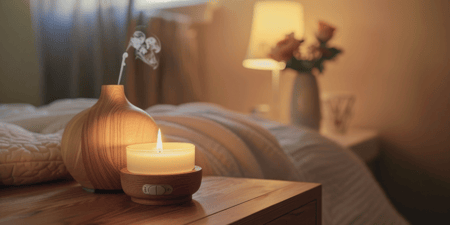
In a world filled with chaos and stress, it is important we find ways in our daily lives that can help us find our own sense of calm. This is particularly relevant now as we face the challenges of working and living through a global pandemic.
Tea has been used for centuries around the world to instil peace and connection, not only with oneself but with community. Community can be used to describe family, friends, neighbours, and work colleagues. Tea allows us to transcend age, race, gender, or religion - it is a common denominator. The art of taking tea, although quite a simplistic ritual at face value, is an ancient and spiritual ritual that can have a very deep impact on our state of being, and physical and emotional health.
Here you will discover how you can use loose-leaf tea to dial down stress and get back to your centre.
Tea culture
As one of the most consumed beverages around the world beyond water, tea has rich traditions touching all corners of the globe. It is said to have originated in China nearly 6000 years ago and played a large part in key historical events. Today it forms part of many people’s daily lives across a multitude of cultures stemming from ancient tea rituals.
It is not unusual when visiting Asian countries to be invited to participate in an ancient tea ritual, many of which are linked to Buddhist traditions. There is an art to the tea ceremony. Much care is taken in the preparation of a tea ceremony[1] and is just as important as the serving of the tea. Depending on the time of year, decorations are influenced by the seasons, but the ambience is always said to bring about peace and tranquillity. It is a highly practised skill which takes many years to master. Originally tea ceremonies were first practised by monks to ensure they stayed awake during long periods of meditation. Today, this formal and beautiful tradition is used to connect families and generations and is also very much an integral part of a business capacity/environment. It now even forms a popular complement to weddings, especially in China to connect the two adjoining families.
Tea is unquestionably seeing a resurgence in popularity as a preferred beverage over coffee. High Tea has had a resurgence in popularity and is something of an institution at five-star hotels around the world. Interestingly during lockdown, the delivery of cream teas to homes in the UK[2] has surged. Is it any wonder, what is not to love about a selection of freshly baked scones and egg and cress sandwiches with a piping thermos of tea delivered to your door?
Benefits of tea
As humble as we might think the cup of tea is, it has such powerful qualities. It is a great healer – on many levels. How many occasions have you heard in times of distress, heartache, anxiety - even pain - that a friend, your mum or loved one has said “Sit yourself down and we’ll make a nice cup of tea”. Just the thought of it makes you breathe a big sigh of relief!
As a beverage, tea offers many benefits that affect the body and mind. Due to high levels of antioxidants and chemical compounds[3] of flavonoids and amino acids, research has shown that all forms of teas offer health-promoting qualities. Research has shown that drinking three cups of tea a week[4] is linked to a longer and healthier life. Few people realise that all teas, black, green, oolong and white tea are all derived from the same plant, Camelia sinensis[5], and all offer a range of different benefits to the body.

The unique combination of L-theanine[6] and caffeine found in tea offers the desired effect of being alert and focussed but relaxed. Unlike coffee which offers an instant energy boost, tea offers a sustained caffeine release with a lasting warming effect. This can last up to several hours depending the type of tea how much is used and how it is brewed.
There are also a multitude of hidden minerals and vitamins found in tea[7] including the A, C, and E vitamins that offer many health benefits. L-theanine in tea specifically has been found to be beneficial in minimising stress[8] and in reducing the risk of Alzheimer’s[9] and is great for the skin. Tea also has an anticarcinogenic effect against many different types of cancer[10].
Rainbow of health
There have been many studies on the physical benefits of drinking tea[11] in promoting overall health and helping to decrease the risk of chronic and cognitive disease. You may have a go-to favourite or have a cupboard full of different teas for all moods and occasions. Enjoying a daily cuppa has never been more worthwhile.
Research on black tea is said to combat inflammation and swelling and support healthy immunity. It is also beneficial in terms of reducing risk of diabetes and high cholesterol while maintaining healthy blood sugar levels and improving blood pressure. It is also thought to reduce the risk of strokes by more than 30%[12]. As such, it can help to support a happy heart and a healthy gut.
The benefits of green tea specifically help to improve brain function[13], oral health, and boost metabolism. Research has shown green tea’s high levels of antioxidants have been useful in reducing cancer risks. It can also help cut through fats[14], which is why often we reach for green tea when we feel we may have overindulged.
Research about the benefits of oolong is not as prevalent, however, it is believed to offer great benefits to the skin given its anti-inflammatory and anti-ageing properties. It is also more effective than other teas in weight management and in reducing oxidising stress. Its anti-mutagenic qualities have also been linked to helping reduce cancer cell growth, particularly in some breast cancers.
White tea, the least processed of all tea means that it offers an even greater level of antioxidants of all teas. And besides many of the health benefits already discussed, white tea[15] is antibacterial and good for teeth and bones. It is also particularly effective in helping to reduce osteoporosis.
Happy herbs
Herbal tea offers tea drinkers the same solace as a standard cup of tea, however without caffeine. By far when I ask people what their favourite herbal teas are, they prefer chamomile or peppermint. Both offer their own individual health benefits however both are particularly soothing on the stomach. Chamomile is a particularly calming cuppa and great for cramps. It can help to quiet and relax the mind. Peppermint, on the other hand, is quite uplifting even in terms of its aroma. Aroma has a huge effect on cognition and mind, and inhaling tea[16] has been documented to help improve mood and reduce stress.
Lavender[17] in particular has been shown to deeply impact our cognitive state and is used in aromatherapy to help diffuse anxiety and calm the nervous system. It is also great for insomnia and can also be consumed as a herbal tisane. Research carried out on new mothers[18] showed that those who took the time to inhale their tea deeply and appreciate the aroma before they drank it, assisted in reducing fatigue, depression, and sleep deprivation.
There are many other herbs and spices which can be taken as tea and can be beneficial. I personally enjoy fennel tea at night which aids digestion. Ginger is a great warming cuppa for nausea, motion sickness or morning sickness. Due to its high vitamin C content, hibiscus tea is great for sore throats and its immunity-boosting powers. It also is said to assist with high blood pressure[19]. Even Oprah swears by it! If nothing else, you can enjoy its beautiful rose-coloured hue. Calendula tea is known to be a blood cleanser and exceptionally good for the skin. It can be used when cooled as a poultice on wounds. You can experiment with your preferred aromas and tastes, and equally combine ingredients to make your own individual blends.
Finding time for yourself and your cup of calm
In today’s manic society, there is a prevailing constant need to be “always-on”, connected, and kept up to speed with everything happening around us. Our lives have been made more intense with our personal and professional lives being permeated by Zoom fatigue. Yes, it is a thing. Especially now, it is vital that we all make time for ourselves. Taking a moment, even if just to sit quietly and have a cup of tea and “reset” can make a world of difference. To mitigate the effects of screen overload and other stressors, mindful meditation is a recommended practice and can be done anywhere, at any time.

It can help improve mood, give you the space to restock (by not needing to think) and calm what is described as the monkey mind[20]. I always find if I take a break and have a quiet cuppa, I feel recharged and have a clearer mind. I often come up with an idea or a solution that previously eluded me. To me this time is sacred. A small investment to recharge body and soul. We always seem to struggle to find the time to meditate, so using the few minutes it takes to make a cup of tea takes little effort but brings lasting rewards. This is in addition to the benefits you will enjoy from the cup of tea itself. It also provides an easy way to introduce mindfulness into your daily life.
Five steps to creating a mindful tea ritual
Follow these steps to help you create your own daily mindful tea ritual and enjoy a cup of calm.
1. Fill your kettle! Always use cold water to ensure you have given your chosen tea the most oxygenated water possible (it will taste better).
2. Choose your favourite cup or mug while your kettle comes to the boil. Drinking from a cup that you love will also add another dimension to your tea experience. If you have multiple cups to choose from, select one that suits your mood. Take note of its colour, texture, and the shape of the cup. Is it smooth? Is it chipped? Is it fine or heavy in your hands? What does the handle feel like in your hands? Does it have a pattern on it? Does it have a matching saucer?
3. Select your tea of choice. Remember each type of tea requires different water temperatures and brewing times. This may take some experimentation, but you will know what you prefer best by its taste and aroma, and the type of tea. Here is a general guide:
- Black tea 95 - 100 degrees, brewed for 3 – 5 minutes
- Oolong tea 90 degrees, brewed for 2 – 5 minutes
- Green tea 80 degrees, brewed for 2 – 3 minutes
- White tea 70 – 75 degrees, brewed for 1 – 3 minutes
- Herbal tea 100 degrees, brewed up to 5 minutes
If you do not have a temperature-controlled kettle, boil the water, and let cool for a few minutes. Alternatively, you can add cold water once boiled to reach the desired temperature. Please note using the temperature and brewing guide will greatly enhance your tea experience.
4. Warm your teapot! Place the tea into the warmed teapot. Using an inbuilt strainer allows you to control the brewing times most effectively and brings out the best flavour profile from your tea.
Choose a loose-leaf tea to suit your mood or taste, follow the brewing guidelines above. Use approximately one teaspoon per cup noting this can be adjusted to suit taste and will vary according to leaf size and type. Note you will need more leaves if the tea leaves are large or bulky, and slightly less if the tealeaves are fine. Take time to look at the dry leaves too, their colour, their shape, their consistency. Every tea leaf is unique.
5. Now it is time to enjoy your mindful brew. Take your time to remove the leaves from the teapot, using the inbuilt strainer if you have one. The wet leaves will also smell different to the dry. Note the colour of the liquor – is it a honey brown, golden rust, pale lemon, vibrant green or rich burgundy? Or maybe something entirely different? It should ring true to you. Now lean in to inhale the steam and aroma rising from the cup? What can you smell? Caramel notes, citrus, malt, or berries? Is it toasty, seaweedy, or spicy? Is it juicy, buttery or astringent? Where does this aroma take you? Can you think of a place? A memory?
The humble cup of tea offers you so many benefits, not only for your body, but also your mind. Allow tea to take you on a sensory voyage. A voyage to a peaceful place where you can find solace, if only for a few moments.
NB: Please consult your general practitioner about tea and herbs that may interfere with medications, or if you are pregnant or breastfeeding.
References
1. Tea Ceremony. Britannica; [cited on 2025 Feb 27].
2. UK turns to delivery cream teas during lockdown. BBC; 2020.
3. Chemical Compounds in Tea. Tony Gebely; 2025.
4. Tea drinkers live longer. ScienceDaily; 2020.
5. Camellia sinensis. Teapedia; 2024.
6. What You Should Know About L-Theanine. Healthline; 2021.
7. All About Greentea. ITO EN; [cited on 2025 Feb 27].
8. Sakamoto FL, Ribeiro RMP, Bueno AA, Santos HO. Psychotropic effects of L-theanine and its clinical properties: From the management of anxiety and stress to a potential use in schizophrenia. Pharmacological Research; 2019.
9. Polito CA, Cai ZY, Shi YL, Li XM, Yang R, Shi M, et al. Association of Tea Consumption with Risk of Alzheimer’s Disease and Anti-Beta-Amyloid Effects of Tea. Nutrients; 2018.
10. Aboulwafa MM, Youssef FS, Gad HA, Altyar AE, Al-Azizi MM, Ashour ML. A Comprehensive Insight on the Health Benefits and Phytoconstituents of Camellia sinensis and Recent Approaches for Its Quality Control. Antioxidants; 2019.
11. The Hidden Health Benefits of Tea. Penn Medicine; 2022.
12. Larsson SC, Virtamo J, Wolk A. Black tea consumption and risk of stroke in women and men. Annals of Epidemiology; 2013.
13. Drinking tea improves brain health, study suggests. Science Daily; 2019.
14. Westerterp-Plantenga. Green tea catechins, caffeine and body-weight regulation. Physiology & Behavior; 2010.
15. 17 Proven White Tea Benefits That Will Surprise You. StyleCraze; 2025.
16. Black tea aromatherapy? It could aid stress Natural Health News; 2018.
17. 4 Benefits and Uses of Lavender Tea and Extracts. Healthline; 2020.
18. Chen S, Chen C. Effects of lavender tea on fatigue, depression, and Maternal‐Infant attachment in Sleep‐Disturbed postnatal women. Worldviews on Evidence-Based Nursing; 2015.
19. Hibiscus tea benefits and nutrition. Medical News Today; 2024.
20. 8 Science-Based Tricks For Quieting The Monkey Mind. Forbes; 2017.
Disclaimer: This Content has been developed from our generous global community and is intended for informational purposes only. This Content is not, nor is it intended to be, a substitute for professional medical advice, diagnosis, or treatment and should never be relied upon. Further, the personal views and experiences published are expressly those of the author, and do not represent the views or endorsement of SoulAdvisor through the act of publication on our site.




























































